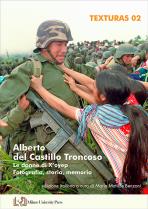Le donne di X’oyep. Fotografia, storia, memoria
Keywords:
Chiapas, EZLN, History of Mexico, Pedro Valtierra, Italy - Europe - Latin America relationsSynopsis
Las mujeres de X’oyep (Mexico, 2013) by Alberto del Castillo Troncoso provides an incisive historical and cultural analysis of a powerful photograph by Pedro Valtierra taken in early 1998 in the Chiapas of indigenous and Zapatista resistance. Almost thirty years after the levantamiento of the EZLN (1994), the Italian edition of the research contains additional approaches by the author, standing out among international translations of the book due to the choice to interweave the perspectives of this study with the themes addressed in the other essays published in the volume. We refer to the diffusion and trajectories of photography in Mexico (19th-20th centuries) (Maria Matilde Benzoni-Alberto del Castillo Troncoso), the historical roots of the crisis in Chiapas (Massimo De Giuseppe), and the prism of expressions of attention and participation toward this glocal horizon that has matured in Italy from the late 20th century to the present (Simone Ferrari)
Downloads

Downloads
Published
Series
License

This work is licensed under a Creative Commons Attribution-ShareAlike 4.0 International License.





